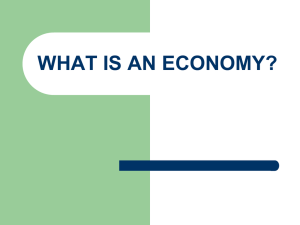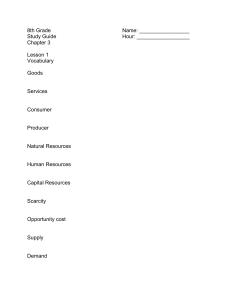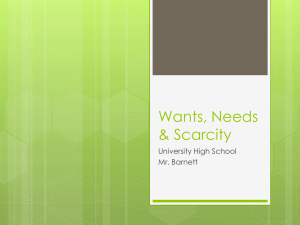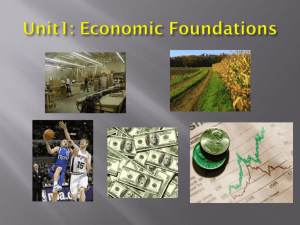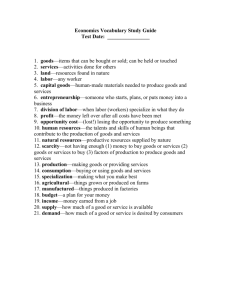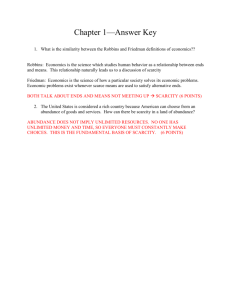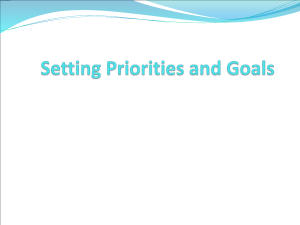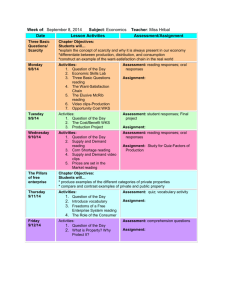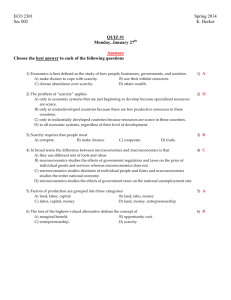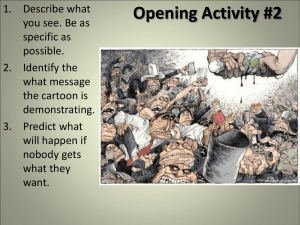SSEF1: Scarcity, Resources, Trade-Offs and
advertisement
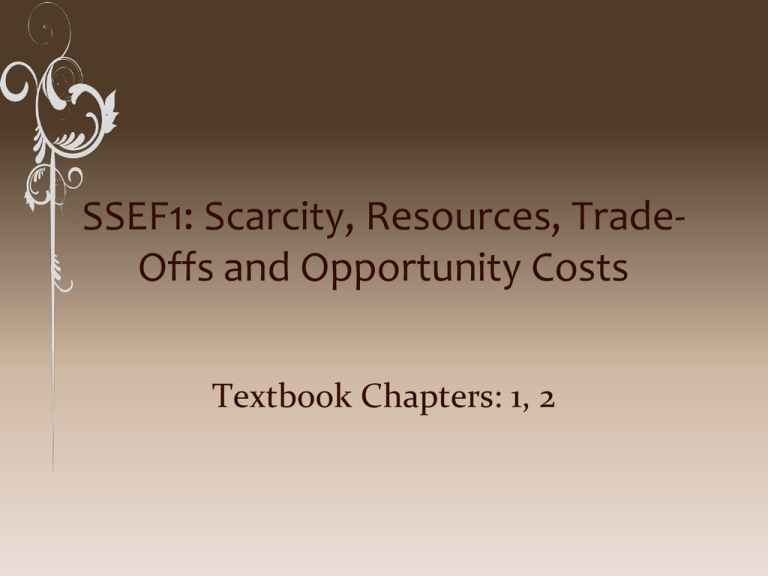
SSEF1: Scarcity, Resources, TradeOffs and Opportunity Costs Textbook Chapters: 1, 2 Scarcity • Consumers unlimited wants for goods and services exceeds the limited resources used to make the goods and services • or • Resource has more than one valuable use EX: A large lot of trees that can be used either as Christmas trees or lumber for chairs but not both. Scarcity cont. • Once a resource is used up it can NOT be replaced • If I use the resource, you can not use it • The resource must be desirable, someone has to want it Resources • a resource is any item used to make a good or service • Good: physical item consumers purchase – Ex: cars, MP3 player, cell phone etc • Service: something someone does for a consumer – Ex: medical, teacher, Metro PCS 4 Categories of Resources All resources fit into one of 4 categories • Natural / Land Resources Resources that come from the earth Trees Oil Water Minerals Land • Human / Labor Resources People and their physical and mental skills to do a particular job All skills and knowledge are called your human capital • Capital Resources / Capital Goods Physical items made by people that are used to produce other goods / services • Entrepreneurship The ability to create ideas and organize tasks in order to produce a good or service Do not need the physical and mental skills to actually produce – can hire people to do the work What do we do about scarce resources? • Have to allocate scarce resources for production of goods and services • Allocate: to distribute • Goods/services have value – Resources are allocated based on value • High value = more resources Trade-Offs • Scarcity leads to choices • Decide what to and what not to produce • trade-off - choosing between two options – Make a sacrifice and give something up – EX: Sleep v Video Games Opportunity Cost • The second best alternative you could have had that you end up giving up – your #2 option when you make your choice Unlimited Wants & Needs Limited Resources Scarcity Trade-offs (choices) Opportunity Costs Vocabulary • Scarcity • Resources – – – – Land Labor Capital Entrepreneurship • Goods • • • • Services Trade-off Allocation Opportunity Cost An individual decides to pay $8 to see a movie instead of buying an $8 meal. What is the opportunity cost of the movie? A the satisfaction missed by not eating the meal B the $8 paid to see the movie C the time spent watching the movie D the satisfaction received by going to the movie

